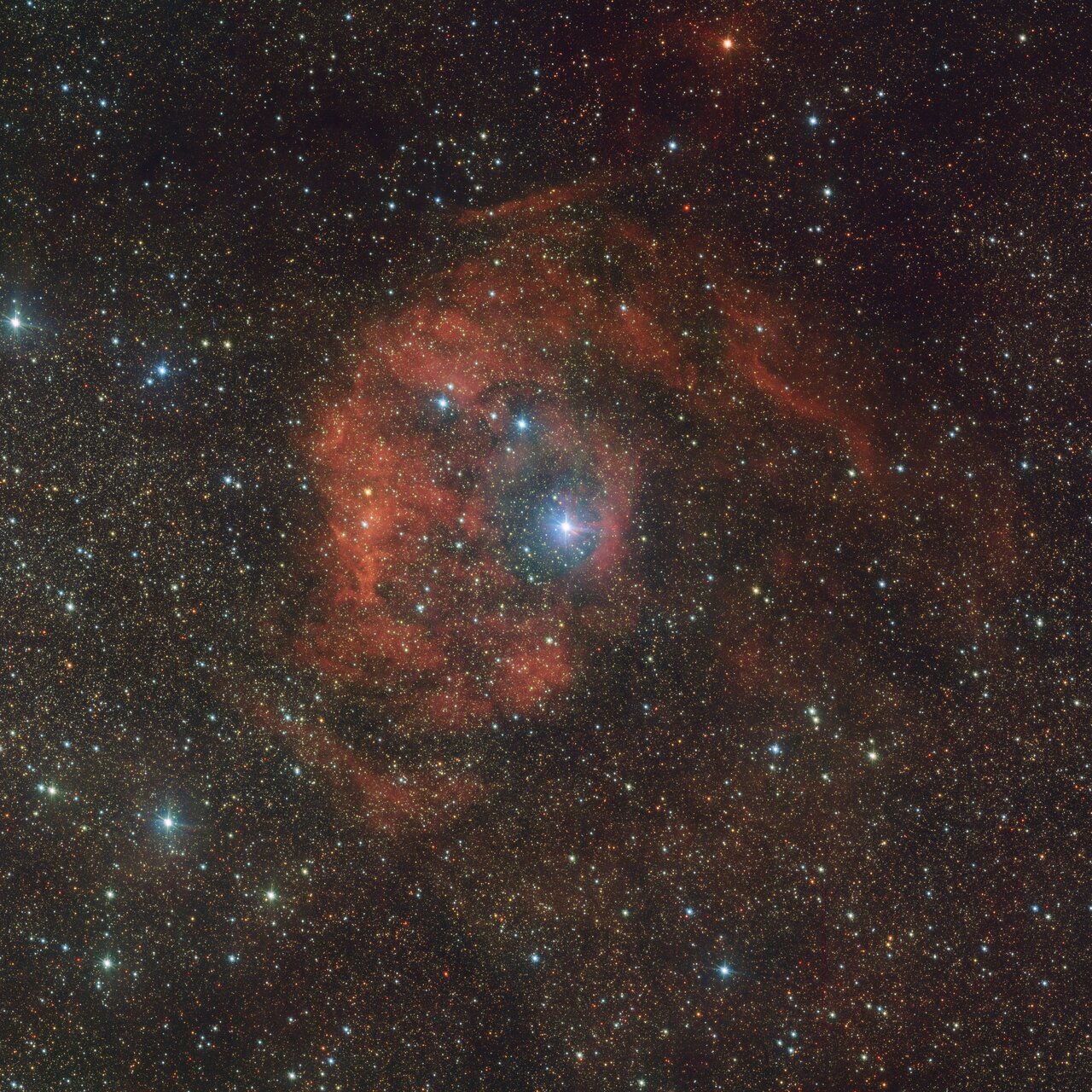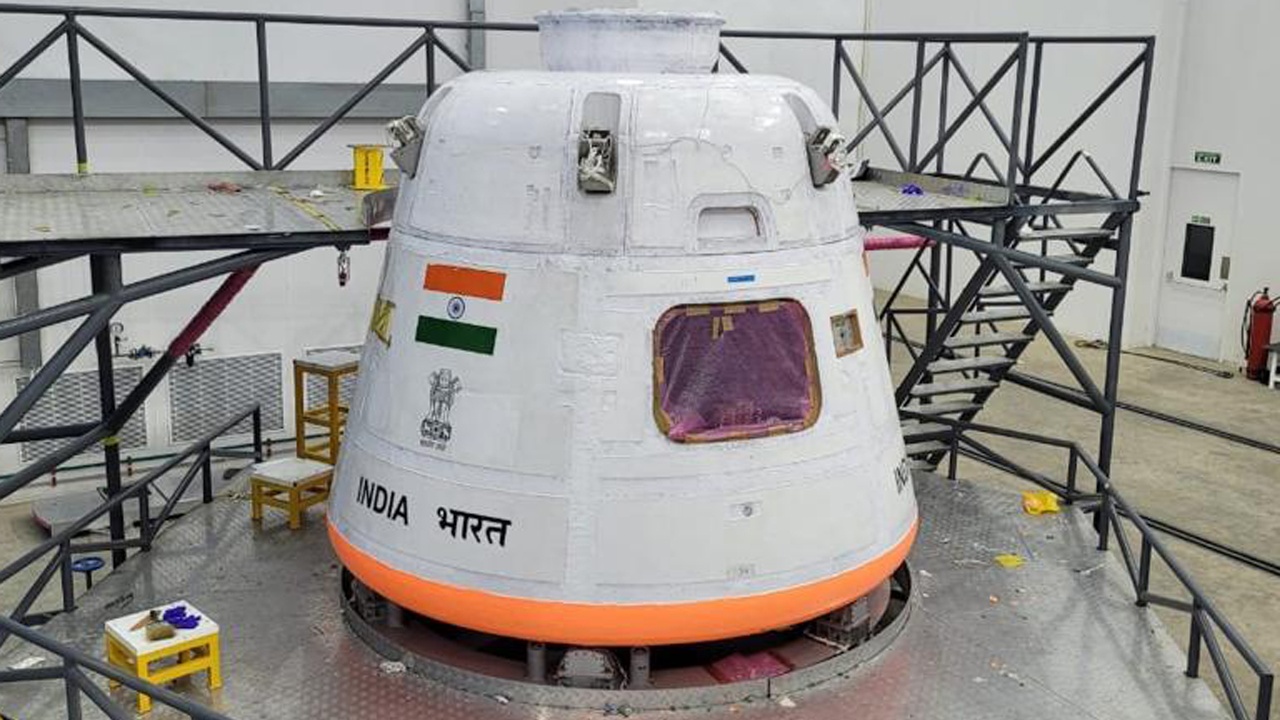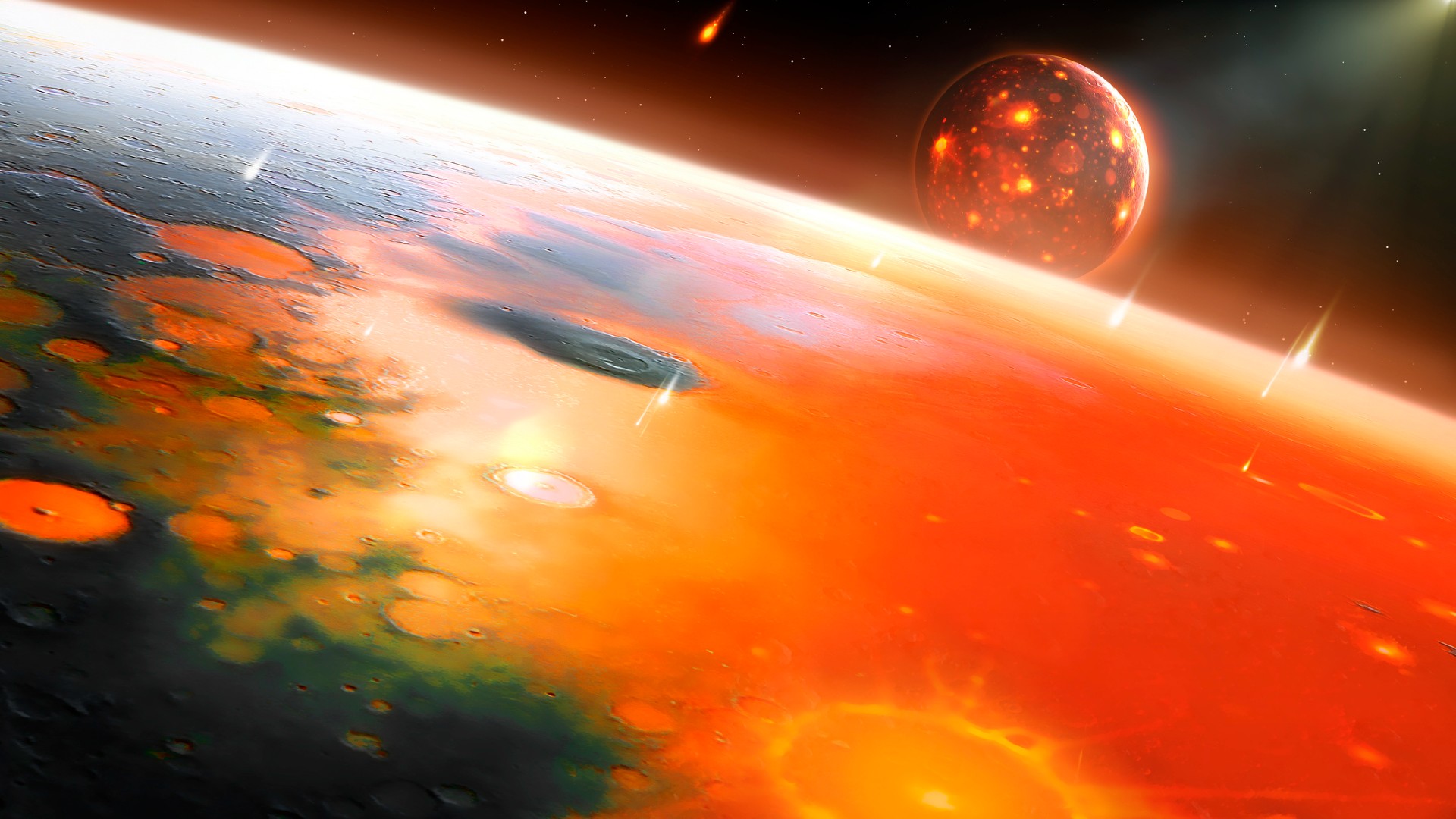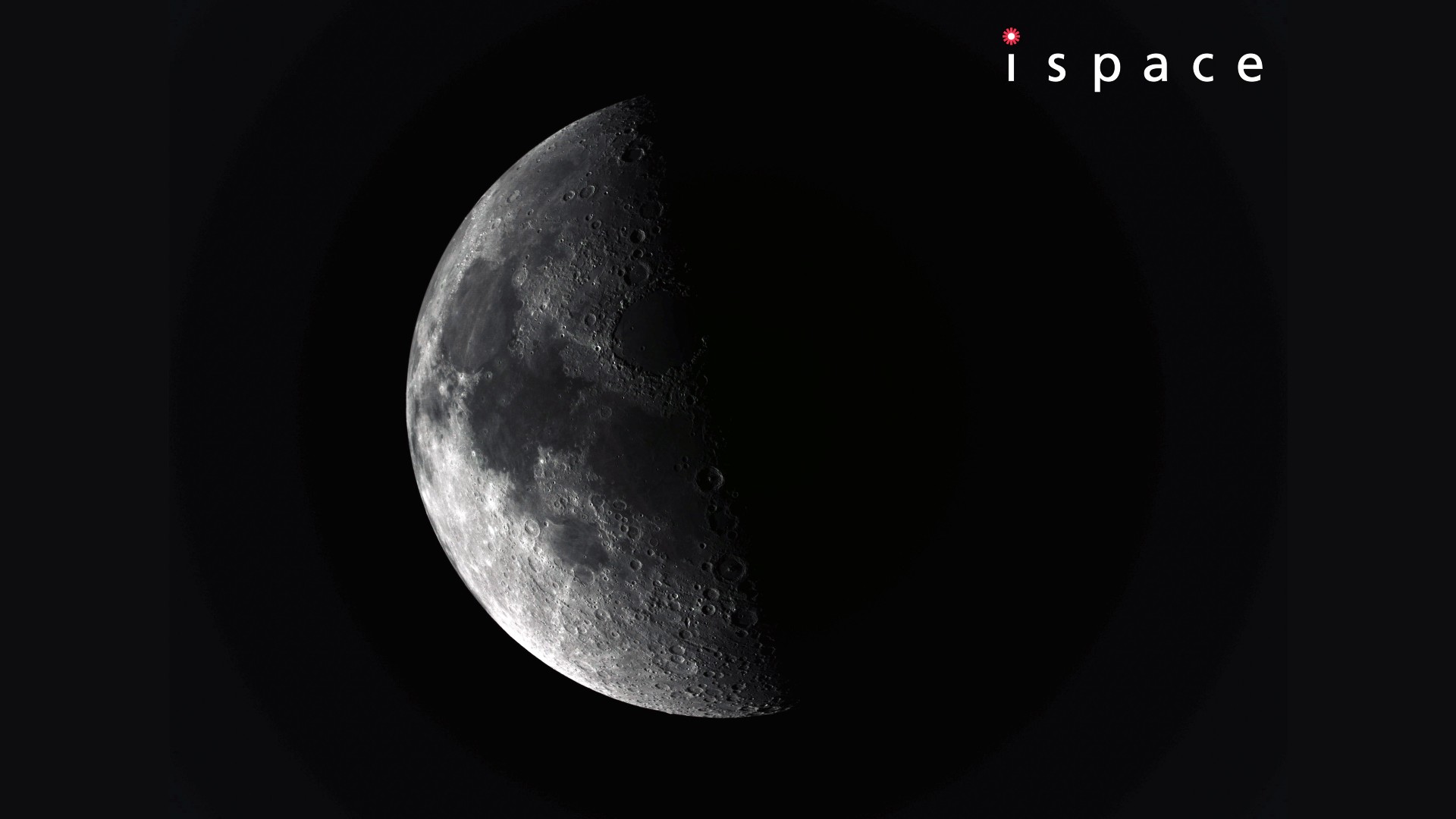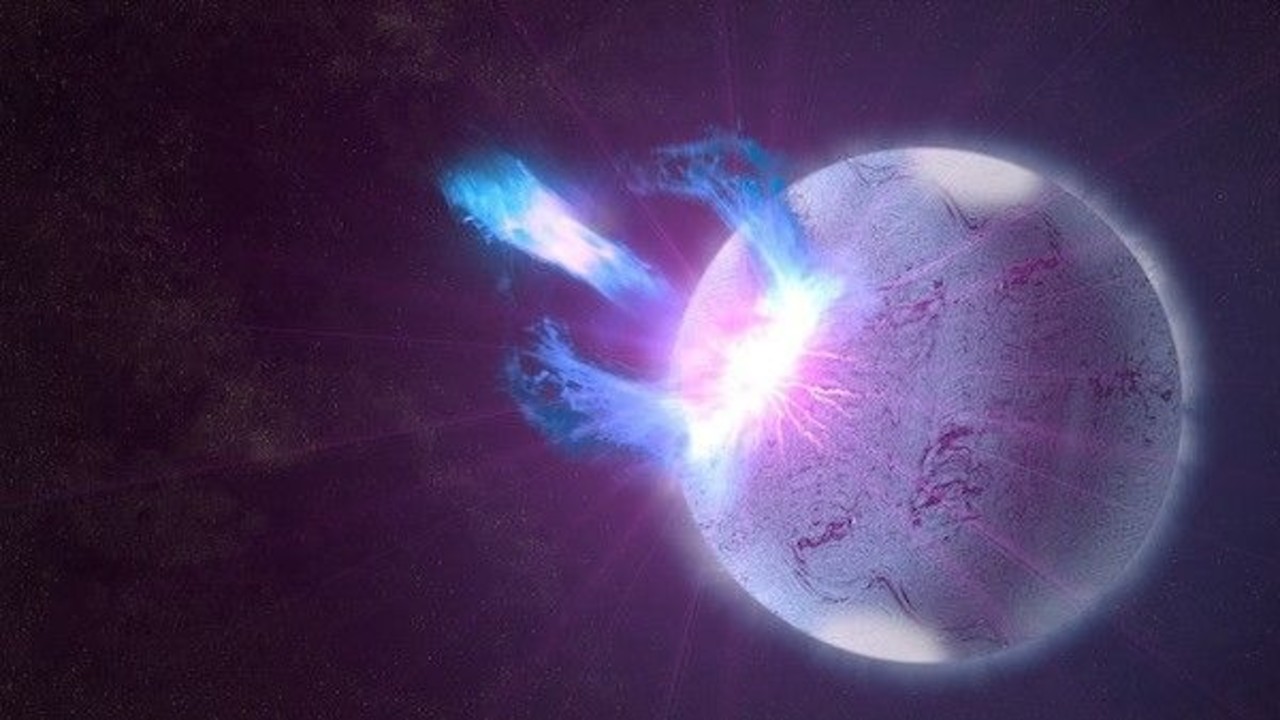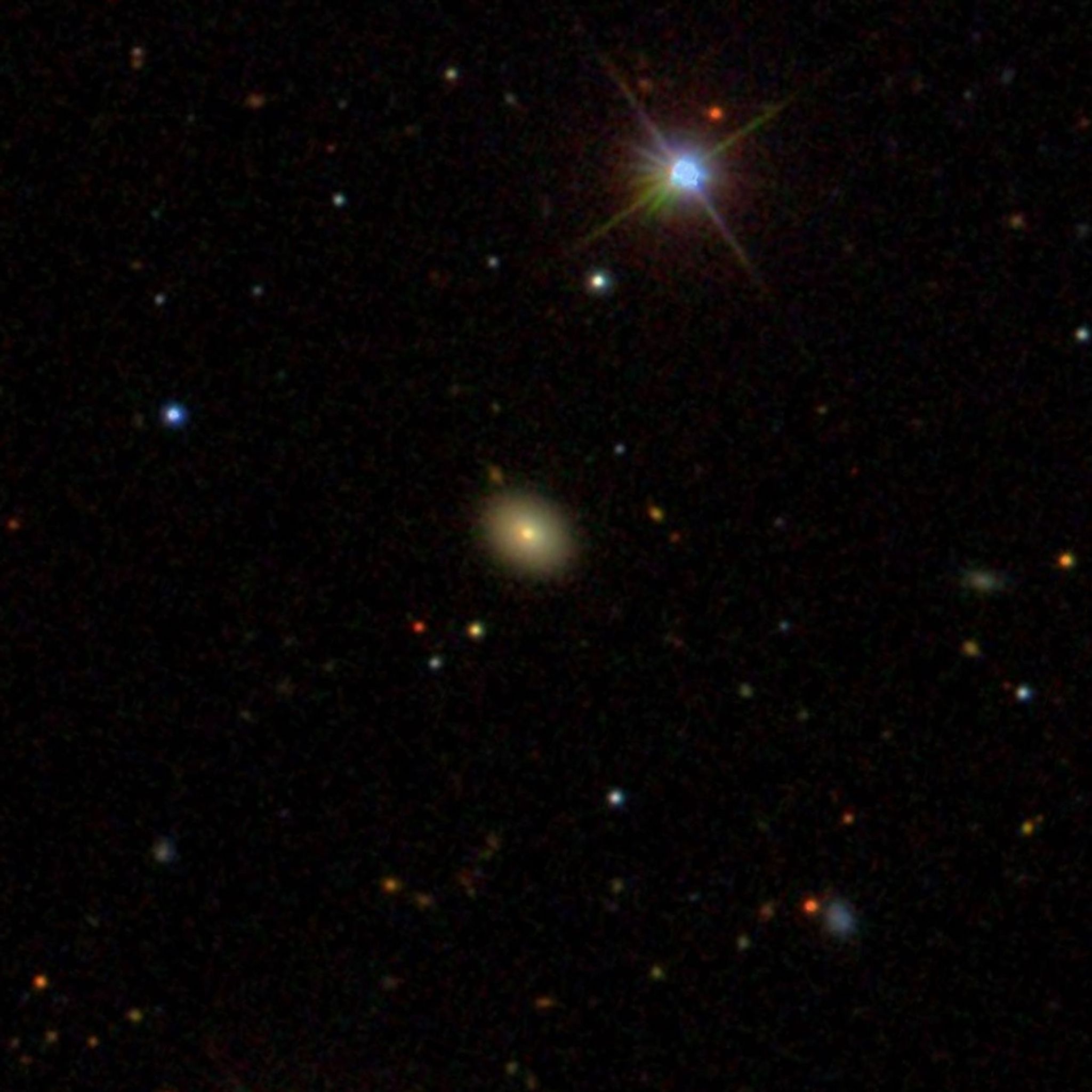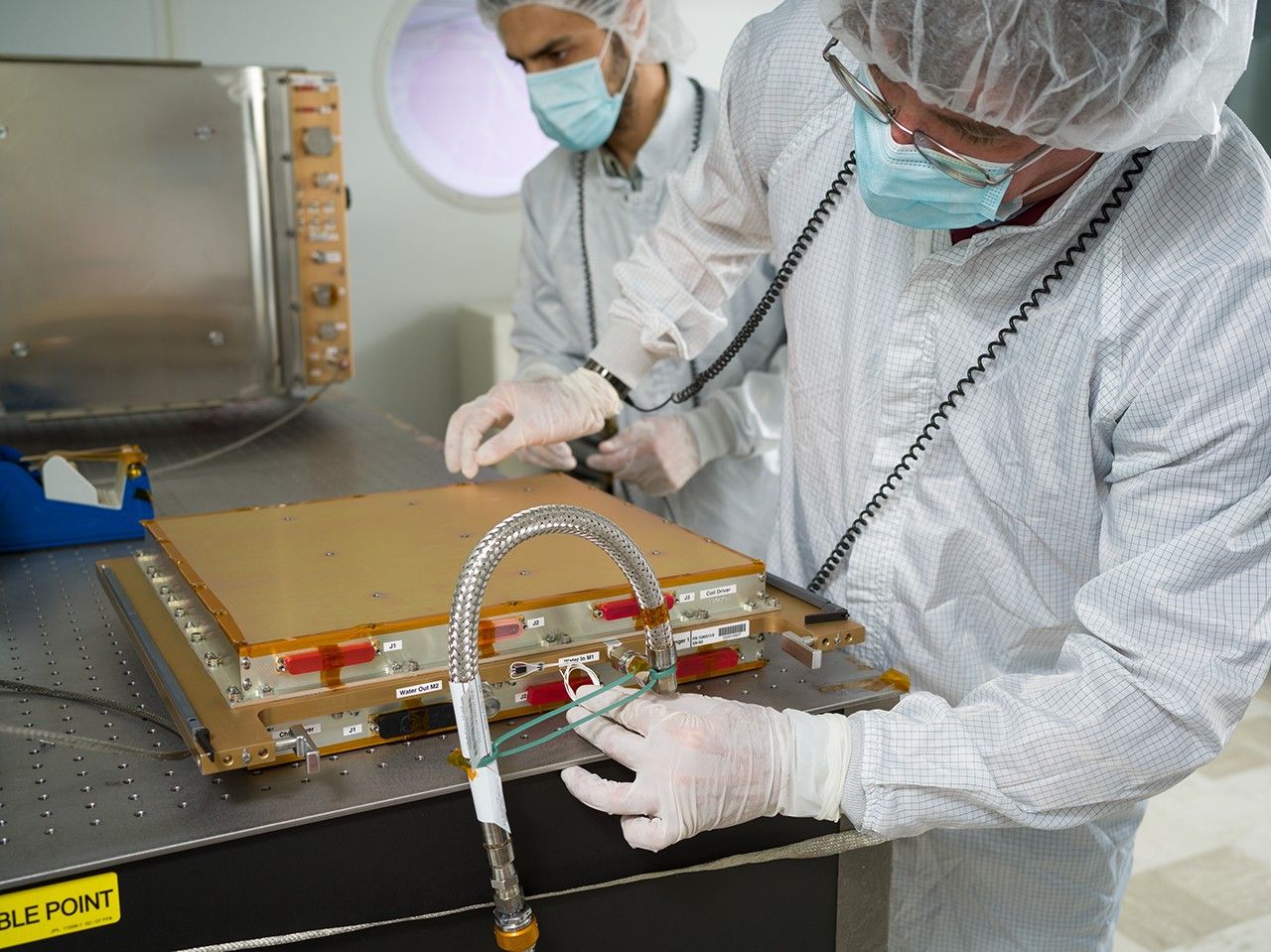A dazzling new image from the European Southern Observatory’s VLT Survey Telescope in Chile has revealed an unusual cosmic tale unfolding 6,000 light-years away in the Serpens constellation. The snapshot features the vivid red nebula Sh2-46 — also known as Gum 80 — lit up in a fiery hue due to intense radiation coming from a brilliant blue-white star nestled at its heart. The stellar behemoth is among the rarest and most luminous stars in the universe, wielding significant influence over its surroundings. Despite its dominant presence, astronomers believe this…
Read MoreCategory: Space Stations
Space stations in orbit or planned
‘The Rocky Horror Picture Show’ returns to theaters later this year for 50th anniversary of Transylvanian aliens landing on Earth
Forget tossing Milk Duds and Diet Cokes during “Minecraft: The Movie” multiplex viewings, the original audience participation flick “The Rocky Horror Picture Show” is back in the news, celebrating its milestone 50th anniversary this year with a sparkling 4K UHD Blu-ray release en route for fans and special birthday screenings sometime later this year. Directed by Jim Sherman, “The Rocky Horror Picture Show” has become a cinematic cult classic that began life in London as a campy 1973 sci-fi horror stage musical written by eccentric actor Richard O’Brien. After a…
Read MoreIndia delays 1st Gaganyaan astronaut launch to 2027
India now plans to launch astronauts to space no sooner than 2027, shifting the goal post for the country’s first human spaceflight yet again. Indian space minister Jitendra Singh announced the latest delay during a press conference Tuesday (May 6), running through the progress of India’s crewed spaceflight program and providing an updated timeline for its first Gaganyaan crewed missions. The Indian Space Research Organisation (ISRO) is now targeting the first quarter of 2027 for its first astronaut launch, which was originally planned to fly in 2022. The landmark human…
Read MoreOur moon may have once been as hellish as Jupiter’s super volcanic moon Io
The moon spent a few million years as a volcanic wasteland, covered with ongoing eruptions that spewed from mountains and even from the ground itself. New research suggests that the moon’s orbit could have turned it into a molten monster for a few tens of millions of years. The result may have been comparable to Jupiter’s moon Io, the most volcanic body in the solar system. Early in the history of the solar system, a massive protoplanet plowed into a young Earth. The colliding material intermixed, then reformed into two…
Read More‘Gears of War: Reloaded’ chainsaws its way into Xbox, PS5, and PC this summer, and everyone will be playing together
We’ve been recommending that you replay the best Gears of War games ahead of E-Day (the upcoming Rogue One-ish prequel) for a while, but now you have no excuse, as the original Gears of War is returning to consoles and PC with a new remaster, and this time it’s coming to PlayStation too. On May 5, The Coalition’s Mike Crump announced through the Xbox Wire blog that Marcus Fenix and his ragtag team of COG soldiers will take on the Locust Horde once again in Gears of War: Reloaded. We’re…
Read MoreJapan’s Resilience moon lander arrives in lunar orbit ahead of historic touchdown try
A private Japanese lunar lander is now in orbit around the moon. The Resilience spacecraft, which was built by the Tokyo-based company ispace, arrived at the moon on schedule Tuesday (May 6), keeping it on target for a historic touchdown try a month from now. “First and foremost, we are extremely pleased that the Resilience lander successfully reached lunar orbit as planned today,” Takeshi Hakamada, ispace’s founder and CEO, said in a statement. “We will continue to proceed with careful operations and thorough preparations to ensure the success of the…
Read MoreWhere does the universe’s gold come from? Giant flares from extreme magnetic stars offer a clue
Scientists have finally gathered direct proof of how the universe forges its heaviest elements, a process that has remained a mystery for over half a century. A team from the Flatiron Institute in New York City calculated that giant flares emitted by magnetars — highly magnetic types of collapsed stars known as neutron stars — could be the long-sought cosmic forge that creates the universe’s heavy elements. Just one of these giant flares could produce a planet’s worth of gold, platinum, and uranium. “It’s pretty incredible to think that some…
Read MoreNASA’s NICER Maps Debris From Recurring Cosmic Crashes
5 min read NASA’s NICER Maps Debris From Recurring Cosmic Crashes Lee esta nota de prensa en español aquí. For the first time, astronomers have probed the physical environment of repeating X-ray outbursts near monster black holes thanks to data from NASA’s NICER (Neutron star Interior Composition Explorer) and other missions. Scientists have only recently encountered this class of X-ray flares, called QPEs, or quasi-periodic eruptions. A system astronomers have nicknamed Ansky is the eighth QPE source discovered, and it produces the most energetic outbursts seen to date. Ansky also…
Read MoreSpot the Station Frequently Asked Questions
An augmented reality interface makes it easier for users to locate the International Space Station and provides options for capturing and sharing pictures and videos of their sightings in real-time (Credit: NASA). 1. Why is the International Space Station up there? The International Space Station is a convergence of science, technology, and human innovation that enables research not possible on Earth for the benefit of humanity. For more than 25 years, NASA has supported a continuous U.S. human presence aboard the station, through which astronauts have learned to live and…
Read MoreQuantum Sensing via Matter-Wave Interferometry Aboard the International Space Station
6 min read Quantum Sensing via Matter-Wave Interferometry Aboard the International Space Station Future space missions could use quantum technologies to help us understand the physical laws that govern the universe, explore the composition of other planets and their moons, gain insights into unexplained cosmological phenomena, or monitor ice sheet thickness and the amount of water in underground aquafers on Earth. Upgraded hardware being prepared at Jet Propulsion Lab for launch and install into the Cold Atom Lab on the International Space Station. The Science Module in the background enables…
Read More